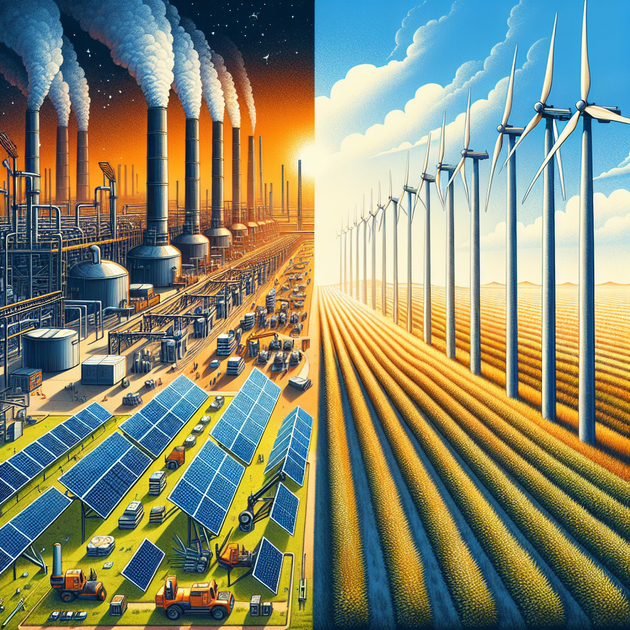Have you ever wondered why your next electric car—or even your solar panels—might soon come from China instead of an American company? The clean-energy race isn’t just about bragging rights; it’s shaping our economy and climate future right now.
Why Is the Clean-Energy Race So Important?
The “clean-energy race” is more than a buzzword—it’s a global competition to lead in renewable technologies like solar panels, wind turbines, batteries, and electric vehicles (EVs). Whoever wins this race gets not only new jobs and economic growth but also a big say in how we tackle climate change.
Here in the U.S., there was hope we’d be leading the charge with Silicon Valley innovation and government investments. But lately, it seems like we’re watching from the sidelines as China sprints ahead.
How Did China Take the Lead?
It didn’t happen overnight. Over the last decade, China made huge bets on green tech—think hundreds of billions of dollars invested in solar factories, battery plants, and EV assembly lines. Chinese companies now make over 80% of the world’s solar panels and dominate battery supply chains too.
Meanwhile, American projects sometimes get tangled up in political debates or face slow permit processes. While there are bright spots—like new wind farms popping up across Texas—it’s clear that at the global level, we’re not matching China’s speed or scale.
Let’s look at some key differences:
- China invests over twice as much government money into renewables compared to the U.S.
- Most of today’s affordable solar panels are made in Chinese factories.
- China controls much of the world’s supply of rare minerals needed for batteries.
- The U.S. has strong research but struggles with manufacturing at competitive prices.
The Real-World Impact: An Anecdote
Let me share a story that stuck with me: A friend recently tried to buy solar panels for his home here in California. He wanted to buy American-made products but found out they were almost double the price of imports from China—with longer wait times too! In the end, he felt torn between supporting local industry and saving money on his family’s utility bills.
Multiply that decision by millions of homeowners and businesses around America—and you see how tough this challenge really is.
What Does This Mean for America’s Future?
Losing ground in the clean-energy race isn’t just about economics—it could shape who writes tomorrow’s rules on everything from carbon emissions to trade standards.
If we keep trailing behind:
- Clean-tech jobs may shift overseas
- U.S.-based companies could miss out on fast-growing markets
- We might become dependent on foreign supply chains for crucial technology
- America has less influence on global climate policy
But it doesn’t have to stay this way! Experts say better incentives for local manufacturing (think tax credits or direct investment), speeding up project approvals, and focusing on next-generation tech could help us catch up—or even take back some lost ground.
Can We Regain Our Place in Clean Energy?
Here’s something hopeful: The U.S. still leads in innovation—we’ve got top scientists and inventors pushing boundaries every day. If policymakers prioritize both research and making things here at home (not just inventing them), there’s a path forward.
So what do you think—is it time for America to double down on its clean-energy ambitions? Or are we okay letting someone else set the pace? The outcome will shape not just jobs or politics—but our planet itself.

Leave a Reply